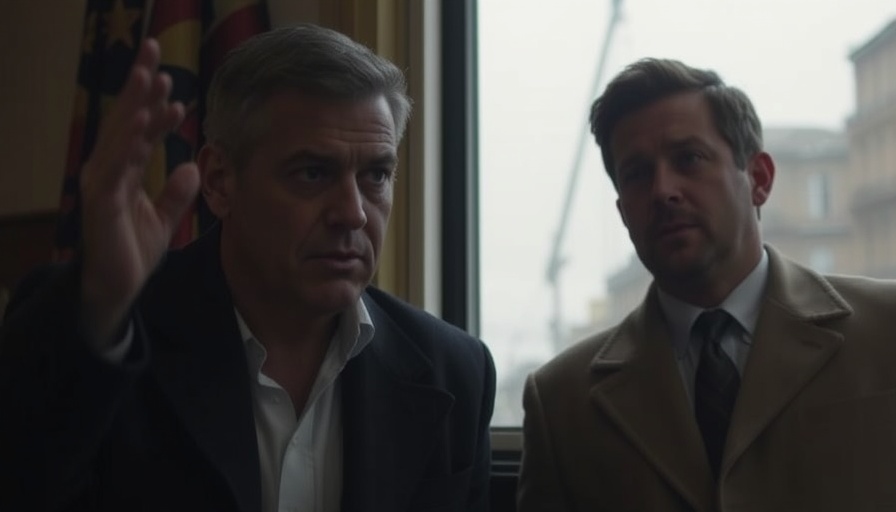
Revealing the Truth Behind 'The Salt Path'
The enchanting tale of Raynor Winn and her husband Moth, depicted in the bestselling memoir The Salt Path, has captivated audiences with its themes of resilience and love. However, recent allegations have surfaced against Winn, challenging the authenticity of both her narrative and the circumstances surrounding her and Moth's tragic journey.
A Controversial Investigation Unfolds
A recent article in The Observer presents claims that Raynor Winn, whose actual name is Sally Walker, allegedly took approximately £64,000 from a former employer while making misleading statements about her homelessness. This investigation has now overshadowed the acclaim received by the memoir, which inspired a film adaptation featuring Gillian Anderson as Winn.
The accusations portray a starkly different side of the story. According to the claims, Walker’s act of borrowing from an estate agency led to her family's financial ruin. It raises critical questions: Was their house genuinely repossessed due to unmanageable debts, or have parts of the narrative been embellished for dramatic effect? Winn’s subsequent response insists the report is “highly misleading” and that they are considering their legal options.
Understanding the Memoir's Impact
Winn’s memoir portrays the couple's journey along the 630-mile South West Coast Path after losing their home, presenting themes of survival and hope. But contrasting opinions now emerge, suggesting that the narrative may not reflect the full truth of their situation. The investigation questions the legitimacy of Moth's illness as well, alleging that essential details about their financial struggles were omitted or misrepresented.
The Fine Line of Truth in Memoir Writing
This controversy sparks a larger conversation about the ethics of memoir writing. Stories of overcoming adversity surely inspire many, but where should authors draw the line between artistic license and factual accuracy? Should personal circumstances be dramatized to evoke greater emotional responses from readers?
Notably, readers often become emotionally invested in the narratives of those deemed to have triumphed against the odds. By examining memoirs critically, we can assess how often authors might manipulate reality to achieve a more compelling tale.
What This Means for Digital Nomads
For digital nomads and travelers, the awakening of this investigation serves as a reminder of the choices we make and the stories we share. The urge to romanticize our journeys can sometimes overshadow the reality of our experiences. Remember, stories resonate, but honesty about our challenges makes them more relatable and impactful.
The importance of authenticity in travel narratives cannot be overstated. As explorers of the world, ensuring our tales reflect truth fosters trust and connection with our audience. This journey isn’t just about picturesque views and thrilling experiences; it also includes facing life's complexities.
Call to Action: Reflect on Your Narrative
As you embark on your own adventures, consider how your narrative aligns with reality. Share your ups and downs honestly, recognizing that every experience offers insights worth telling. Authenticity builds deeper connections and enriched storytelling.
In conclusion, while the stories we tell can uplift and inspire, it is crucial to ground them in truth. Whether traversing the world or occupying our corner of it, honesty about our paths will always resonate more profoundly with readers, fostering a meaningful connection.
 Add Row
Add Row  Add
Add 




Write A Comment